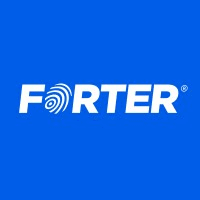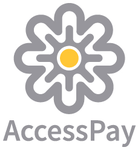What Is Financial Fraud Detection Software?
Financial fraud detection software is a specialized technology used to detect and prevent fraudulent activity in the financial sector. It is an essential tool for businesses and organizations to protect their financial data and avoid financial crimes including money laundering, identity theft, and fraudulent transactions.
This program examines vast volumes of data using complex algorithms to detect suspicious patterns and abnormalities that could suggest fraudulent behavior. It may monitor a variety of financial operations, including transactions, account balances, and user behavior across numerous channels. One of the key features of financial fraud detection software is its capacity to identify potential threats in real time.
This helps firms to take fast action and avoid future financial losses. The software also creates alerts and reports, allowing firms to get important insights into potential dangers and improve their fraud protection efforts. With the advent of digital transactions and online banking, effective fraud detection software has become increasingly important.
Furthermore, financial institutions are subject to stringent rules and compliance standards, making it critical to have effective fraud detection tools in place. When considering acquiring financial fraud detection software, you must assess its features, interoperability with existing systems, and customer support. In addition, seek for software that provides ongoing updates and stays ahead of new fraud strategies.
What Are The Recent Trends In Financial Fraud Detection Software?
The world of banking is always changing, as are the strategies of fraudsters. This has resulted in the development of new and creative technology for combating financial fraud. In recent years, various innovations in financial fraud detection software have transformed the way businesses and organizations protect themselves from fraudulent actions.
One of the most important trends in financial fraud detection software is the use of artificial intelligence (AI) and machine learning algorithms. These modern technologies have substantially improved the accuracy and speed of fraud detection by analyzing vast volumes of data and discovering patterns and anomalies that may signal fraudulent activity.
This has significantly decreased the amount of false positives and enabled more efficient and effective fraud protection. Another trend in financial fraud detection software is the use of real-time monitoring and detection. With the increased pace of financial transactions, organizations must have the ability to detect and prevent fraud in real time.
This enables prompt action to prevent financial losses or reputational damage. Blockchain technology has also emerged as an effective tool for combating financial fraud. Blockchain technology, which uses an immutable and decentralized ledger, can significantly improve the security and transparency of financial transactions, making it more difficult for fraudsters to modify data or steal important information.
The incorporation of big data analytics has also become a popular feature in financial fraud detection software. This entails evaluating massive amounts of data from various sources to identify patterns and trends that may suggest fraudulent activity. This enables a more complete and integrated approach to fraud prevention. Finally, the usage of linked platforms has facilitated a more collaborative approach to fraud detection.
These platforms enable the sharing of data and information between departments and organizations, resulting in a more comprehensive and successful fraud prevention strategy.
Benefits Of Using Financial Fraud Detection Software
Financial fraud is a huge problem for firms of all sizes and industries, resulting in billions of dollars in damages annually. This makes it critical for organizations to implement procedures to detect and prevent fraudulent conduct.
Fraud detection software is a key instrument in combating financial fraud. Here are some of the main advantages of using financial fraud detection software:
1. Early Detection Of Fraudulent Behavior: One of the most significant benefits of employing fraud detection software is the ability to detect fraudulent behavior early on. By continuously monitoring financial transactions, the software may rapidly detect any questionable conduct and flag it for investigation. This enables firms to take fast action to mitigate any losses.
2. Reduces Manual Effort And Human Error: Without fraud detection software, firms must rely on manual processes and human judgment to detect and investigate fraud. This can be time-consuming and error-prone since humans are incapable of tracking every transaction and detecting subtle patterns of fraud. This procedure is mechanized using software, which reduces the need for manual work and the likelihood of human error.
3. Customizable To Meet Specific Needs: When it comes to financial fraud, each firm faces unique issues and threats. One of the primary advantages of employing fraud detection software is that it can be tailored to the individual demands of a business. This means that the program may be customized to monitor only the types of transactions or patterns of behavior that are most important to a specific organization, making it even more successful at identifying fraud.
4. Real-Time Monitoring: In today's fast-paced business climate, financial activities must be monitored in real-time. Fraud detection software can monitor transactions in real time, sending organizations rapid notifications and allowing them to respond quickly if fraudulent behavior is found. This is especially critical for avoiding damages in the event of account takeover or identity fraud.
5. Cost-Effective: Investing in fraud detection software can save firms a lot of money in the long term. Businesses can avoid financial losses and save money on investigations and legal processes by detecting fraudulent conduct early on. Furthermore, the software helps firms retain a solid reputation and client trust, which can lead to improved income in the long run.
6. Regulation Compliance: Strict rules and compliance standards apply to several businesses, including banking and healthcare. Fraud detection software can assist organizations in complying with these standards by continuously monitoring transactions and alerting any questionable activity that may breach regulatory requirements.
Important Factors To Consider While Purchasing Financial Fraud Detection Software?
Financial fraud is a growing threat for corporations and organizations, costing billions of dollars annually. To protect against such threats, many businesses use financial fraud detection software. However, with so many options available in the market, choosing the proper software might be difficult.
To help you with this process, we've developed a list of key elements to consider when selecting financial fraud detection software.
1. Type Of Fraud Detection: The first and most important element to consider is the software's fraud detection capabilities. Many systems provide a broad picture of financial transactions, while others focus on specific types of fraud, such as identity theft, payment fraud, or employee fraud. It is critical to assess your organization's risk and determine which types of fraud you want the program to detect.
2. Real-Time Monitoring: In today's fast-paced corporate world, detecting fraud in real time is critical. Having software that can continuously monitor financial transactions and send notifications for questionable activity can help to decrease the impact of fraud. Look for software that allows for real-time monitoring to enable fraud detection and prevention.
3. Data Analytics: Advanced data analytics are an essential component of any financial fraud detection program. It allows the software to recognize trends and irregularities in financial data, making it easier to detect fraudulent activity. Make sure the software you choose has sophisticated data analytics capabilities.
4. Integration With Existing Systems: Financial fraud detection software should work easily with your existing systems, such as accounting software and CRM, to provide a complete picture of your company's financial data. This integration improves data management and streamlines fraud detection.
5. User-Friendly Interface: Ease of use is an important factor to consider when selecting any product. The interface of the financial fraud detection software should be simple and intuitive, allowing your staff to browse and use it successfully.
6. Scalability: As your firm expands, so will the number of financial transactions. It is critical to choose software that can manage enormous amounts of data and scale effortlessly as your business grows. This ensures that the program continues to provide effective fraud detection services in the long run.
7. Reputation And Client Support: To evaluate the software's effectiveness, look into the provider's reputation and client reviews. Additionally, confirm that the service provides dependable customer care and assistance in the event of any technical issues or inquiries.
What Are The Key Features To Look For In Financial Fraud Detection Software?
Investing in effective and accurate fraud detection software is critical for protecting your finances from fraudulent activity. With an increasing number of financial fraud instances, it is critical for businesses and individuals to have a robust defensive strategy in place. However, with so many options available in the market, it might be difficult to choose the best one. To help you make an informed decision, here are some crucial features to look for in financial fraud detection software:
1. Real-Time Monitoring: The program should be able to track financial transactions in real-time. This allows you to detect and prevent fraudulent actions instantly, reducing the chance of financial loss.
2. Advanced Analytics: The software should use advanced analytics techniques like machine learning and artificial intelligence to identify trends and abnormalities in financial transactions. This will increase the accuracy of fraud detection while decreasing false positives.
3. Customizable Alerts: Look for software that allows you to create custom alerts for specific types of suspicious transactions or activity. This will allow you to be aware about potential fraud attempts and take timely action.
4. Integration With Existing Systems: It is critical to select fraud detection software that works flawlessly with your current financial systems. This will allow for seamless and effective operations without disturbing your business procedures.
5. Multi-Layer Approach: A comprehensive fraud detection solution should have various layers of security, such as authentication, encryption, and detection algorithms. This multi-layered technique makes it harder for fraudsters to get past your defenses.
6. Data Security: To secure sensitive financial information, the program should prioritize data security and implement strong encryption mechanisms. It should also meet industry requirements and data protection regulations.
7. User-Friendly Interface: The software's interface should be straightforward to use and navigate. This will make it easier for your staff to utilize and comprehend the software, hence increasing its efficacy.
8. Reporting And Analytics: A effective fraud detection program should be able to provide extensive reports as well as providing analytics to assist you in understanding fraud attempt patterns and trends. By selecting financial fraud detection software that includes these critical capabilities, you can increase your defense against fraudulent actions and protect your money. Make careful to research multiple vendors and request demos to find the greatest fit for your specific requirements and budget.
Why Do Businesses Need Financial Fraud Detection Software?
Financial fraud is becoming a major threat for organizations of all kinds. According to a research from the Association of Certified Fraud Examiners, fraud costs organizations an estimated 5% of their annual sales. To address this issue, organizations require a powerful tool: financial fraud detection software. This program is intended to detect and prevent fraudulent activity, hence protecting firms' financial health.
One of the key reasons businesses require financial fraud detection software is the ever-changing strategies utilized by fraudsters. As technology evolves, fraudsters devise new ways to defraud organizations and avoid old fraud detection tools. This software combines powerful algorithms and artificial intelligence to detect fraudulent transactions in real time.
Furthermore, financial fraud detection software enables organizations to constantly monitor their financial systems and procedures. It can monitor all financial transactions, discover patterns, and alert to irregularities. This in-depth monitoring might expose potential system flaws and help firms to improve their security procedures to prevent theft.
Financial fraud detection software can also help organizations comply with regulatory standards. Many industries have tight standards addressing financial fraud, and failing to comply can result in significant fines and legal consequences. With this program, firms may automate compliance checks and identify non-compliant activity, allowing them to take corrective action right away.
Furthermore, deploying financial fraud detection software can save firms a lot of money in the long term. Detecting and preventing fraud at an early stage can help to save financial losses and legal costs. It also preserves firms' reputations and fosters trust among consumers and stakeholders, ensuring long-term growth and success.
How Much Time Is Required To Implement Financial Fraud Detection Software?
The implementation time for financial fraud detection software varies depending on factors such as your organization's size and complexity, the program used, and the level of customization needed. On average, the implementation procedure can last from a few weeks to a few months. The initial step in establishing financial fraud detection software is usually data integration.
This includes importing the relevant financial data into the software and configuring the required connections and permissions. The time necessary for this stage will be determined by the volume of data and the data sources used. Next, the program must be set to meet your organization's specific demands and fraud detection tactics.
This could include configuring rules, thresholds, and alarms, as well as training the software on prior data to increase accuracy. Furthermore, user training should be included in the implementation timeline. It is critical that all relevant personnel are familiar with the software's capabilities and understand how to use it successfully to detect and avoid fraud.
This training can last anything from a few hours to a few days, depending on the software's complexity. Finally, comprehensive testing and quality assurance are required before fully deploying the product. This includes running simulations to ensure the software's accuracy and effectiveness. This process can take a few weeks to several months, depending on the size of your organization and the level of testing required.
What Is The Level Of Customization Available In Financial Fraud Detection Software?
When comparing financial fraud detection software, it is critical to examine the degree of customisation offered. This refers to the software's ability to be customized to meet the unique demands and requirements of a business. The extent of customisation in financial fraud detection software can vary substantially, so carefully consider this factor before making a purchasing decision.
One factor to evaluate is the software's versatility with respect to data sources. High-quality fraud detection software should be able to interact with a variety of data sources, including transactional data, customer information, and external databases, to provide a complete picture of any fraudulent activity. This provides for a high level of flexibility in terms of the exact data types and data sources that are important to a business.
Another important factor to consider is the extent of user interface customization offered. The software should include user-friendly features and easily adjustable dashboards to allow firms to set up and monitor fraud detection systems that are adapted to their individual requirements. This may include altering data display, alert triggers, and trend analysis.
Furthermore, the capacity to tailor rules and parameters is critical in financial fraud detection software. Every organization has different risk tolerances and fraud concerns, and the software should offer a variety of alternatives for configuring rules and parameters based on those considerations. This includes the ability to set thresholds and establish custom rules for specific sorts of transactions, customers, or scenarios.
Some advanced fraud detection software has machine learning capabilities, allowing for greater personalization over time. These systems may continuously learn from transaction patterns and alter rules and parameters accordingly, resulting in a highly personalized and effective fraud detection method. When assessing financial fraud detection software, it is critical to consider the level of customisation offered.
The more flexibility and customization the software provides, the better it will be able to detect and prevent fraud tailored to a company's specific requirements. Make sure to conduct extensive study and analyze many possibilities to locate the one that best matches your company's requirements.
Which Industries Can Benefit The Most From Financial Fraud Detection Software?
Financial fraud is an increasing threat for firms across industries, with annual losses estimated in the billions. As technology advances, fraudsters' strategies and tactics improve, making it increasingly difficult for firms to detect and prevent fraud. Here's where financial fraud detection software comes in. Financial fraud detection software, often known as anti-fraud software, employs sophisticated algorithms and data analytics to detect unusual activity and trends in financial transactions. It can assist organizations of all sizes and industries in detecting and preventing fraudulent activity, thereby protecting their financial assets and reputation.
1. Banking And Financial Services: The banking and financial services industry is a popular target for financial fraud. Fraudsters frequently target financial institutions in an attempt to make big sums of money rapidly. In fact, according to a Federal Reserve analysis, financial institutions have the highest fraud rate among all industries. Financial fraud detection software is critical in this market because it may help spot unusual transactions and prevent fraudulent activities such account takeovers, credit card fraud, and loan fraud.
2. Retail & E-commerce: The expansion of online purchasing has also raised the possibility of financial theft in the retail and e-commerce sectors. Fraudsters exploit stolen credit card information to make fraudulent purchases, causing enormous losses to retailers. Financial fraud detection software can assist organizations in detecting and preventing e-commerce fraud by identifying unusual transactions and comparing them to fraud databases.
3. Insurance: The insurance industry is another popular target for financial fraud, particularly vehicle and health insurance. Fraudulent and overstated claims can cause large losses for insurance firms. Financial fraud detection software can assist insurance businesses in identifying suspect data trends, such as multiple claims from the same individual and odd activity, allowing them to uncover fraud earlier and reduce losses.
4. Government And Public Sector: The government and public sector retain sensitive data and process a huge volume of financial transactions, making them a tempting target for fraudsters. Financial fraud detection software can assist government agencies and public-sector companies in detecting and preventing fraud in a variety of sectors, including tax fraud, social benefit programs, and contract fraud, thereby protecting public monies.
5. Healthcare: Fraudulent practices in the healthcare industry include charging for services not performed, overbilling, and prescription fraud. These can lead to financial losses for healthcare providers and higher expenditures for patients. Financial fraud detection software can assist in identifying and preventing fraudulent activity, as well as guaranteeing medical billing accuracy and patient data security.
Conclusion
Finally, investing in dependable financial fraud detection software is critical for any organization trying to secure its assets and keep client trust. With the increasing complexity and frequency of financial crime, having reliable software in place is becoming a requirement rather than a luxury. When looking for the best solution, evaluate the sort of fraud the program can identify, its accuracy and speed, usability, and interface with existing systems.
Furthermore, it is advised that you use software that provides continuing support and updates in order to remain ahead of new fraud strategies. Businesses may make an informed decision and select the best financial fraud detection software for their specific needs by properly comparing the features and capabilities of various products.
Finally, adopting the correct software can help preserve the company's money while also maintaining a favorable reputation and building client trust. We hope this buyer's guide was useful in your search for the best financial fraud detection software.






















